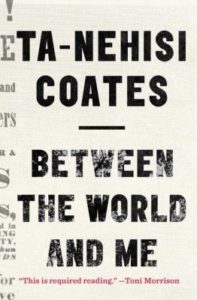Being Uncomfortable
December 31, 2020 in From the Clergy, General, Rabbi Greg Harris
 This is the fifth week of the month for Reflections Off the Bimah. Today ends a very long and difficult year. Tonight, we shift into 2021 with much anticipation of possibilities ahead and relief at gaining distance from the recent past. Pandemic, isolation, professional insecurities, anxieties, politics, injustices and more turned 2020 on its head. The year was also filled with board games, sour dough bread, Zoom connections and often exceeding the recommended 10,000 steps a day.
This is the fifth week of the month for Reflections Off the Bimah. Today ends a very long and difficult year. Tonight, we shift into 2021 with much anticipation of possibilities ahead and relief at gaining distance from the recent past. Pandemic, isolation, professional insecurities, anxieties, politics, injustices and more turned 2020 on its head. The year was also filled with board games, sour dough bread, Zoom connections and often exceeding the recommended 10,000 steps a day.
Due to its frequency, I have become familiar with being uncomfortable. I have sat with my discomforts. On my best days, I follow the direction of these proddings like a sail embraces the wind. I have been moved to re-examine my assumptions – what some call privilege. I appreciate my own lifestyle more while also fueling my sense of urgency for seeing beyond my comfortable surroundings.
Leaning into the words of Rabbi Eliezer in Pirke Avot (2:10):
רַבִּי אֱלִיעֶזֶר אוֹמֵר, יְהִי כְבוֹד חֲבֵרְךָ חָבִיב עָלֶיךָ כְּשֶׁלָּךְ
Rabbi Eliezer said: Let the honor of your friend be as dear to you as your own
Have I adequately honored the words and actions and lives of those in my broader community? I understand defining chaver (friend) in a narrow way – my immediate friend circles. But what about chaver as my larger community? Have I protected the honor of my larger community? Have I adequately spoken up this past year against anti-Semitic speech or racial injustices or supported those in economic hardship? Have I been cloistered in my sense of chaver and given only lip service to others?
Have I honored my friend’s honor as much as my own?
This year, I have allowed myself to sit with these difficult and uncomfortable questions.
In friendship and partnership with Bethesda United Methodist Church (BUMC), we will explore some of these discomforts as Beth El and BUMC read Ta-Nehisi Coates’ book Between the World and Me. Coates’ account of growing up in Baltimore, his transformation at Howard University and reflections on being Black in America is a powerful memoir written as a letter to his teenage son. Over four weeks (Jan 19, 26, Feb 2, 9 at 7pm), we will unpack Coates’ uncomfortable messages – painful for him to experience and uncomfortable for many of us to hear.
This interfaith book program is part of our on-going efforts to partner with other houses of worship to raise shared concerns and issues. We invite you to read this memoir and join us to challenge and be challenged by Coates’ experiences. Information for registering for the book club is forthcoming.
So as I enter 2021, I am willing to sit with my discomforts and let them teach me. I am open to growing from my discomforts.
In Leo Tolstoy’s essay, “Three Methods Of Reform” he wrote: “in our world everybody thinks of changing humanity, and nobody thinks of changing himself.” In our efforts for Tikkun Olam, let us invest the energy necessary for our own growth. By coming together as faith communities to confront the uncomfortable, we will strengthen our bonds and grow in the new year.